Do Hot Drinks Cause Cancer?
New research shows that "hot drinks" -- drinks with a temperature of and greater than 149 degrees Fahrenheit can cause esophageal cancer. Mormon Church founder Joseph Smith saw the danger of "hot drinks" a 184 years ago and proscribed their use for members of his Church.
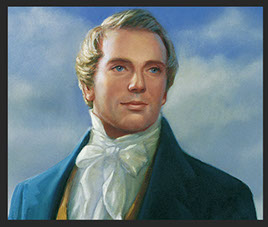 Over 184 years ago Mormon Church founder Joseph Smith received a revelation, called the “Word of Wisdom,” in which he proclaimed the use of wine, strong drinks, tobacco, and hot drinks was proscribed and meat was to be eaten sparingly. The Mormon culture has always believed “hot drinks” to be coffee and tea. But recent research may have broadened the hot drink category to all hot drinks — not just coffee and tea.
Over 184 years ago Mormon Church founder Joseph Smith received a revelation, called the “Word of Wisdom,” in which he proclaimed the use of wine, strong drinks, tobacco, and hot drinks was proscribed and meat was to be eaten sparingly. The Mormon culture has always believed “hot drinks” to be coffee and tea. But recent research may have broadened the hot drink category to all hot drinks — not just coffee and tea.
Anyone who likes to curl up with a steaming hot cup of hot chocolate or herbal tea might consider letting some of that warmth subside; drinking it could increase their risk of developing cancer.
Hot Beverages Carcinogenic to Humans?
In a study published by the International Agency for Research on Cancer, the cancer agency of the World Health Organization, drinking very hot beverages was classified as "probably carcinogenic to humans."
More specifically, the review by a panel of global experts stated that drinking beverages at temperatures above 149 degrees Fahrenheit — 65 degrees Celsius —could cause people to develop cancer of their esophagus, the eighth most common form of cancer worldwide.
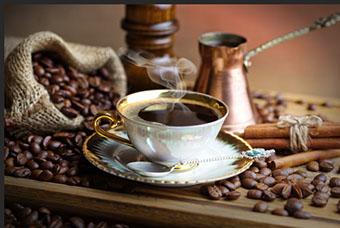 Drinking tea, coffee or other hot beverages at this temperature and has previously been linked to an increased cancer risk in this part of the body. This new research only confirmed the efficacy of the other “hot” drink studies.
Drinking tea, coffee or other hot beverages at this temperature and has previously been linked to an increased cancer risk in this part of the body. This new research only confirmed the efficacy of the other “hot” drink studies.
Getting Hot
The findings come after a group of 23 international scientists analyzed all available data on the carcinogenicity of coffee, maté — a leaf infusion consumed commonly in South America and other regions — and a range of other hot beverages, including tea. They decided that drinks consumed at hot temperatures were linked to cancer of the esophagus in humans.
The new classification puts consuming hot drinks in the same risk group as exposure to substances such as lead, gasoline and exhaust fumes, which are also classified as "possibly carcinogenic" by the agency. Use of talcum powder on the perineal or anal regions of the body is also within this category.
It’s the Temperature, Rather Than the Drinks Themselves
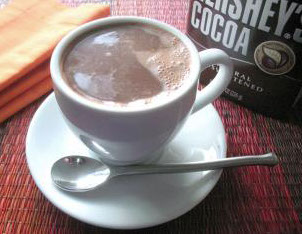 Evidence for the findings was limited, but studies in China, Iran, Turkey and South America found positive associations between the risk of this form of cancer and temperatures at which drinks were consumed. Forms of tea, including the leaf infusion maté, are typically drunk high temperatures, above 158 degrees Fahrenheit (70 degrees Celsius) in these regions, according to the agency.
Evidence for the findings was limited, but studies in China, Iran, Turkey and South America found positive associations between the risk of this form of cancer and temperatures at which drinks were consumed. Forms of tea, including the leaf infusion maté, are typically drunk high temperatures, above 158 degrees Fahrenheit (70 degrees Celsius) in these regions, according to the agency.
"These results suggest that drinking very hot beverages is one probable cause of esophageal cancer and that it is the temperature, rather than the drinks themselves, that appears to be responsible," said Dr. Christopher Wild, director of the International Agency for Research on Cancer.
Esophageal cancer was responsible for approximately 400,000 recorded deaths worldwide in 2012, about 5% of all cancer deaths.
Though smoking and drinking alcohol are major causes of esophageal cancer, particularly in high-income countries, the majority of cases globally for this form of cancer occur in parts of Asia, South America and East Africa.
"[Here], drinking very hot beverages is common, and the reasons for this high incidence of this cancer are not well-understood," Wild said.
The English Cool Their Tea with Milk
The Tea Advisory Panel in the United Kingdom has responded to the classification by highlighting that tea is drunk at lower temperatures in the UK and that most people add milk.
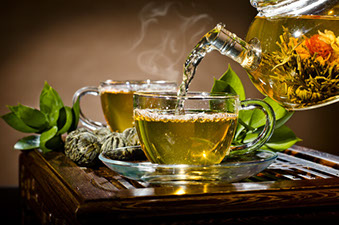 "Tea drinkers in the UK can continue to enjoy tea in the traditional way with a drop of milk, which ensures that the temperature of tea sits within safe limits," said the panel's Tim Bond. "A study by UK doctors found that a cup of tea with 10 milliliters of milk cooled to less than 65 degrees Celsius within five minutes."
"Tea drinkers in the UK can continue to enjoy tea in the traditional way with a drop of milk, which ensures that the temperature of tea sits within safe limits," said the panel's Tim Bond. "A study by UK doctors found that a cup of tea with 10 milliliters of milk cooled to less than 65 degrees Celsius within five minutes."
The heat emanating from a tea or coffee cup, or any hot drink is a significant cancer risk. Previous studies have suggested an optimal drinking temperature of 136 degrees Fahrenheit (57.8 degrees Celsius) or below.
Consuming Cancer
These findings come after a string of similar reports that link food and drink to cancer. A 2015
study found that only 10% to 30% of cancers occur naturally in people's bodies, suggesting that most cancers are, in fact, a result of environmental factors.
Environment and Lifestyle Play a Role in Cancer
In October 2016, the WHO announced results from a report that linked people eating processed meat, such as sausages and ham, to cancer. Based on evidence from hundreds of studies, processed meat was classified as carcinogenic to humans. Unprocessed red meat was classified as probably carcinogenic.
If Meat Causes Cancer, What Can We Eat?
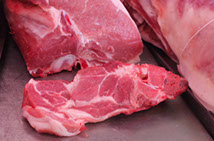 Recent studies have linked Western diets with increased risk of colon and prostate cancer. Men eating mostly a Western diet were found to have 2.5 times the risk of dying from prostate cancer. A Western diet is typically considered to be low in fiber and high in refined sugars, saturated fats and animal protein. The research shows the key to avoiding cancer from meat is to eat meat sparingly and in moderation.
Recent studies have linked Western diets with increased risk of colon and prostate cancer. Men eating mostly a Western diet were found to have 2.5 times the risk of dying from prostate cancer. A Western diet is typically considered to be low in fiber and high in refined sugars, saturated fats and animal protein. The research shows the key to avoiding cancer from meat is to eat meat sparingly and in moderation.
The Word and the Promise
Mormon founder Joseph Smith was well ahead of his time when in 1833 he proclaimed in Section 89 of the Mormon scripture "The Doctrine and Covenants" (D&C):
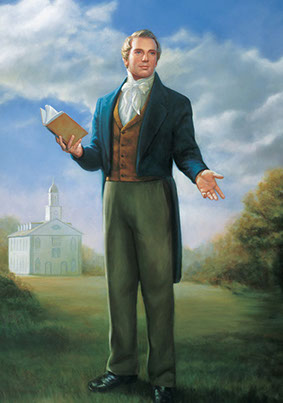 5. That inasmuch as any man drinketh wine or strong drink among
5. That inasmuch as any man drinketh wine or strong drink among
you, behold it is not good.
7And, again, strong drinks are not for the belly . . .
8. And again, tobacco is not for the body, neither for the belly, and is
not good for man . . .
9. And again, hot drinks are not for the body or belly.
11. Every herb in the season thereof, and every fruit in the season
thereof; all these to be used with prudence and thanksgiving.
12. Yea, flesh also of beasts and of the fowls of the air, I, the Lord,
have ordained for the use of man with thanksgiving;
nevertheless they are to be used sparingly.
16. All grain is good for the food of man; as also the fruit of the vine;
that which yieldeth fruit, whether in the ground or above the
ground—
17. Nevertheless, wheat for man, and corn for the ox, and oats
for the horse, and rye for the fowls and for swine, and for all
beasts of the field, and barley for all useful animals, and for
mild drinks, as also other grain.” D&C 89:5, 7-9, 11-12, 16-17
Joseph Smith also received a promise for those who lived by his revealed health code — a promise consistent with the latest research pertaining to the benefits of healthy food consumption and living:
18. And all saints who remember to keep and do these sayings, walking in obedience to the
commandments, shall receive health in their navel and marrow to their bones;
19. And shall find wisdom and great treasures of knowledge, even hidden treasures;
20. And shall run and not be weary, and shall walk and not faint.
21. And I, the Lord, give unto them a promise, that the destroying angel shall pass by them, as
the children of Israel, and not slay them. “ D&C 89:`8-21
What's
Inside


When you first start on a fat loss program don't rely on the scale to measure your progress. Instead, notice and draw encouragement from how loose your once tight clothes become. The loss of excess fat will show up on the scale later as you progress in your program. And once your body makes the transition from sugar to fat-burning the excess fat will begin to quickly melt away. This fat loss is healthy and will continue to burn away until you reach your body's natural level of body fat composition 22% for women and 15% for men.
